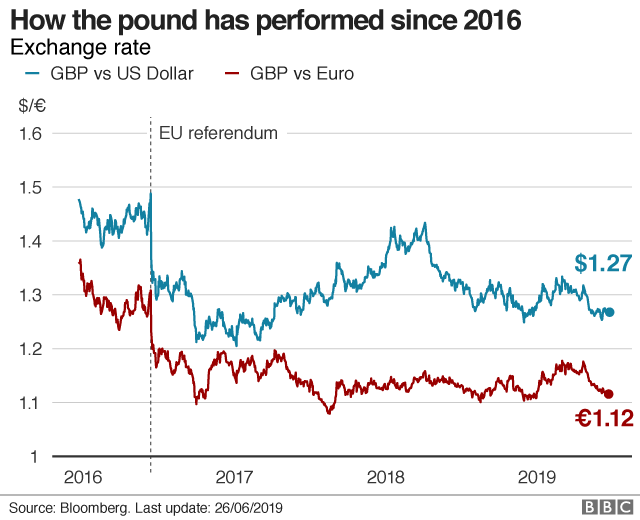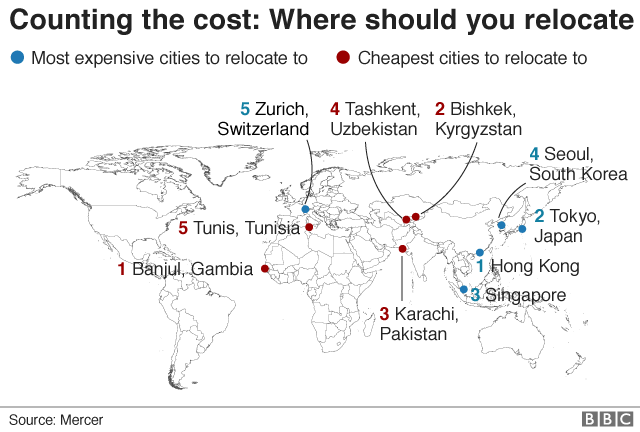Pound's fall has stopped us buying a round of drinks
- Published

Charo Rivero and Javi Amor
When husband and wife, Javi Amor and Charo Rivero, used to return to Spain from their adopted home in London, they used to buy all their friends and family drinks.
But since the Brexit referendum, "everyone pays for their own drinks", said Ms Rivero, who works as a midwife in London.
Ms Rivero and her husband, who is a teacher, are victims of a weak pound, which has hurt the pockets of expats paid in sterling in the UK.
But for some employers that has made the UK more attractive compared with other financial hubs.
The weak currency and low inflation has made cities like London, Birmingham, Aberdeen and Belfast more affordable for firms looking to relocate staff to the country, according to a study by consultancy Mercer.
But that doesn't help Mr Amor who had €800 in his pocket when he arrived in the UK in 2012. He had timed it badly, the euro was at a four-year low against the pound, valuing Mr Amor's savings at just £632.
It was nothing
And that didn't get him far. "It was nothing," he said.
By 2015, the pound was the strongest it had been against the euro in more than seven years, which made Mr Amor feel rich when he returned home.
But in the three years since the EU referendum, the value of the pound has weakened. Against the euro, it has fallen by 14%, with £1 now worth €1.12 and it has fallen 7% against the dollar, with £1 worth $1.27.

Mercer's Michael Grover said that while British holidaymakers and people like Mr Amor and Ms Rivero were "probably feeling that weaker pound", it made the UK more attractive to international firms.
"If you're offering someone their package in pounds, that's maybe less attractive than it was in the past," Mr Grover said.
"But if you're an organisation [such as] a Silicon Valley tech company that's looking to set up its European operation, a weaker pound makes London more attractive."

Last year, London came in as the 19th most costly city to relocate to. But the weaker pound and slow growth has made it more affordable, pushing the capital into the 23rd spot.
Birmingham fell seven places to 135 on the list, Aberdeen slipped by three places to come in at number 137 and Belfast gave up six slots to rank 158th.
The only exception was Glasgow which climbed up the ranking, gaining three places to come in at 145th.
"UK cities' fall in this year's ranking is mainly due to a strengthening of the US dollar against the pound," said Mercer's Kate Fitzpatrick.
"Price inflation remains low, keeping any increases in the cost of living to a minimum for expatriates and locals alike."
She said the UK "remains an attractive destination" for organisations looking to relocate staff, in spite of "well-publicised macro headwinds", including Brexit.
- Published30 April 2019

- Published3 October 2018
